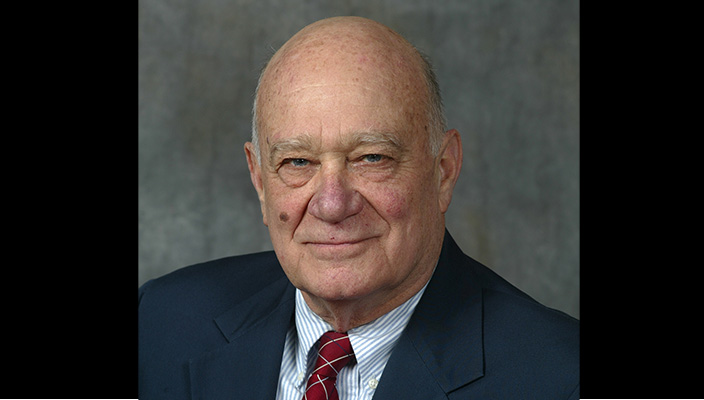
Whether one considers Mr. Chomsky a “Liberal” or a “Radical,” his wide-ranging evaluations of societies and of the human condition continue to prompt deep debates. Indeed, Chomsky has been described in The New York Times as “the top intellectual alive.”
(Avram) Noam Chomsky spent much of the past year warning about three “existential” crises: 1) the danger of nuclear war; 2) failures to deal with climate control and environmental perils; and 3) vulnerabilities for the survival of democracies.
His first two admonitory considerations reinforce the major themes of the “Doomsday Clock” adjusted for level of peril each January. In 2019, The Bulletin of Atomic Scientists, linking the risks of nuclear war and climate dangers, set the clock at two minutes to midnight, tied for the most dangerous point since evaluations began in 1947.
In January 2020, the scientists will give their annual setting of the Doomsday Clock. Mr. Chomsky calls for citizen awareness of the nuclear perils that threaten humanity. His sense of urgency recalls the elegant passion of The Fate of the Earth and many other powerful analyses by the late Jonathan Schell.
Chomsky, like Schell, calls for vigilance and commitment that will impel action against weapons of mass destruction. During a 1990’s lull in the Cold War, Schell’s book “The Gift of Time” emphasized the chance for the U.S. and for Russia to lead the world in global nuclear disarmament.
However, during his entire advocacy, Schell stood with Chomsky’s continuing views of the past two decades: that the civic jolt needed to deal with the nuclear moral emergency has to come from citizens in the U.S. and elsewhere, rather than from political leaders.
Both Chomsky and Schell explained the range of factors (psychological – denial and otherwise, feelings of political impotency) that kept nuclear dangers off the mental screens of most people.
Now, Chomsky cites a host of supporters to reinforce Schell’s conclusion in 1982: “We need people to enter a hell of the imagination to develop resolve to avoid a hell of reality.” In Chomsky’s case, being in his 10th decade of age does not dampen his enthusiasm for going to college campuses and meeting with young people.
Like other American radicals, Chomsky believes that youth will tap their sense of goodness to become part of the process of protest and reform. At college gatherings, he proceeds in the manner of a prosecuting attorney.
He indicts wrongdoers. He calls witnesses whose testimony convicts the offenders and provides new paths for a more just and humane society.
Chomsky says Trump “has enormous support from the corporate media” (especially “most watched” Fox and Sinclair). While Chomsky praises other media “critical of Trump’s lies,” he contends that mainstream media did not provide “focus on McConnell and Ryan, and their legislation harmful to the U.S. and the world.”
It is striking to note the elder social critic encouraging young people to heed the witnesses who give evidence that the “question is whether human life will indeed survive.” Chomsky emphasizes that our dangers are “becoming more urgent every year, and [have] now reached the point where the question will be answered in this generation”
His witnesses include Daniel Ellsberg’s book “The Doomsday Machine,” in which much military planning is described as a “chronicle of human madness.”
Chomsky cites former Secretary of Defense William Perry who is touring the nation, saying he is “doubly terrified, terrified by the severe and mounting threat of nuclear war, and even more so by the lack of concern about the possible termination of organized human life.”
Among other witnesses is General Lee Butler, formerly head of the U.S. Strategic Command, who cites the risk of “omnicide” (“a crime surpassing genocide” because it wipes out every living organism).
Since the 1940s, the advancing Anthropocene of significant global warming escalates our current peril. Chomsky praises efforts of the 2015 Paris accords and initiatives by nations and states, but he is livid in criticism of the U.S. national government “for which we are responsible, dramatically leading our race to destruction, while we sit and watch. That ought to be the screaming headline in every day’s newspaper, ought to be the main topic you study in every class.”
For Chomsky, “denialism” by Trump and Republicans of the major threats to human existence account for the Doomsday clock at its most dangerous point.
Chomsky especially calls on youth to address the peril to democracy itself: “In this possibly terminal phase of human existence, democracy and freedom are more than ideals to be valued – they may be essential to survival.”
As he approaches his 91st birthday on Dec. 7, Chomsky recently tweeted a call for “Optimism – a strategy for making a better future. Because unless you believe that the future can be better, it’s unlikely you will step up and take the responsibility for making it so.”
The late Howard Zinn, a Chomsky admirer, would endorse the elder’s call to action: “Changes and progress very rarely are gifts from above. They come out of struggles from below.”







Has Chomsky delineated between all major causes, such as new administrations in the U.S. or China?